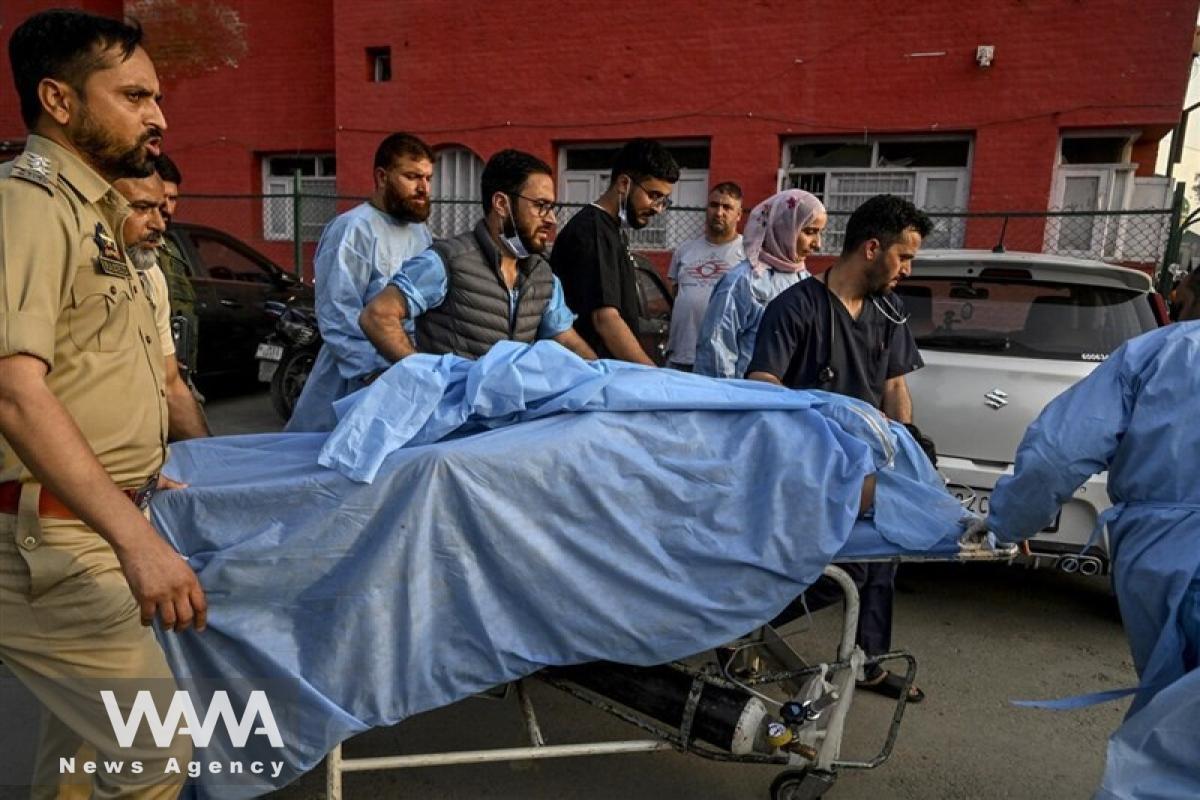Iran, Diplomatic Mediator Between India and Pakistan
WANA (May 04) – As part of the Islamic Republic of Iran’s ongoing efforts to reduce regional tensions and strengthen ties with its neighbors, Iranian Foreign Minister Seyed Abbas Araghchi is scheduled to visit India and Pakistan in the coming days.
This trip comes at a time when South Asia is once again facing a security crisis, and relations between the two regional nuclear powers—India and Pakistan—have become increasingly fragile.
What Is the Latest Dispute Between India and Pakistan About?
The recent crisis began with a deadly attack in the Pahalgam region on April 22, 2025. In this incident, 26 people—mostly tourists—lost their lives. The attack immediately sparked a wave of public outrage in India, prompting the New Delhi government to take a series of tough measures.
India accused Pakistan of supporting cross-border terrorist groups and, in response, implemented several retaliatory actions, including the suspension of the Indus Waters Treaty, expulsion of Pakistani diplomats, border closures, and increased military presence along the Line of Control (LoC).
In its latest move, India has also blocked the flow of water from the Baglihar Dam into Pakistan. In retaliation, Pakistan closed its airspace to Indian flights, and trade relations between the two countries have been suspended.

Deadly attack in the Pahalgam region on April 22, 2025. Social media/ WANA News Agency
Iran’s Constructive Role Amid the Crisis
In such a context, the Islamic Republic of Iran, leveraging its balanced and friendly relations with both countries, announced its readiness to play the role of mediator. In a phone call with Senator Mohammad Ishaq Dar, his Pakistani counterpart, Araqchi condemned the terrorist incident and called on both sides to exercise restraint.
Masoud Pezeshkian, the President of Iran, also held separate conversations with Shahbaz Sharif, the Prime Minister of Pakistan, and Narendra Modi, the Prime Minister of India. He emphasized the need for cooperation in combating terrorism and maintaining regional stability, assuring them of Tehran’s full readiness to help de-escalate tensions.
Islamabad Welcomes Tehran’s Initiative
The positive response from Pakistani officials to this proposal, including the support expressed by the Chairman of Pakistan’s Parliamentary Defense Committee for Araqchi’s upcoming visit, demonstrates Iran’s respected position as a regional mediator.
The Pakistani official described Araqchi’s imminent trip as a significant diplomatic step toward regional peace. He stated that the Government of Pakistan welcomes any effort aimed at reducing misunderstandings and preventing security incidents.

Iran Offers to Facilitate De-escalation Between India and Pakistan
WANA (Apr 27) – Iranian President Masoud Pezeshkian emphasized that Iran is prepared to help eliminate misunderstandings and reduce tensions between India and Pakistan. During a phone conversation with Pakistan’s Prime Minister Shehbaz Sharif on Saturday, Pezeshkian underscored the need for a united effort to confront terrorism. Citing a recent terrorist attack in […]
Challenges of Mediation Between India and Pakistan
Despite Iran’s potential for mediation, this path is fraught with complex challenges:
- The deep-rooted mistrust between India and Pakistan—stemming from wars and historical disputes, especially over the Kashmir region—makes both sides cautious of any foreign initiative. India, in particular, has traditionally opposed external mediation, viewing it as interference in its internal affairs.
- The presence of Iran’s rival actors in the region who present themselves as mediators can create competition and interference in the mediation process.
- India’s close ties with the United States and Israel also cast a shadow over the weight of Iran’s diplomatic initiative. India’s strategic cooperation with Washington and its membership in frameworks such as the QUAD (Quadrilateral Security Dialogue) have added further complexity to the region’s political equation.
Opportunities Ahead for Tehran
Despite these obstacles, Iran possesses capacities that can highlight its role in resolving the crisis:
- Iran’s successful record of regional mediation — including in Nagorno-Karabakh, Tajikistan, Afghanistan, and Iraq — has enhanced its diplomatic credibility.
- Its cultural, religious, and historical ties with both countries, along with Iran’s geopolitical position, make it a natural candidate for playing a constructive role.
- Iran’s experience, familiarity with regional structures, and ability to offer multilateral diplomatic solutions are additional advantages that support its potential success in this path.

Iran’s President Condemned the Terrorist Attack in Pahalgam
WANA (Apr 27) – In a phone call with India’s Prime Minister Narendra Modi, Iran’s President Pezeshkian stated that the Islamic Republic categorically condemns such inhumane acts of terrorism. These tragic events amplify the shared responsibility of all countries in the region and compel the regional states to eradicate the roots of terrorism through […]
In the recent Kashmir crisis, Iran once again demonstrated—through its offer of mediation—that it can play the role of a responsible, balanced, and trustworthy actor in the region’s complex dynamics.
Although achieving lasting peace requires genuine will from both New Delhi and Islamabad, Tehran’s initiative could pave the way for the start of diplomatic dialogue and help prevent the escalation of dangerous tensions.
According to Esmaeil Baqaei, the spokesperson for Iran’s Ministry of Foreign Affairs, Abbas Araghchi will travel to Pakistan on Monday (May 5) to consult with senior Pakistani officials regarding bilateral relations and to review recent regional and international developments.












